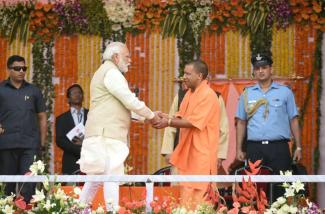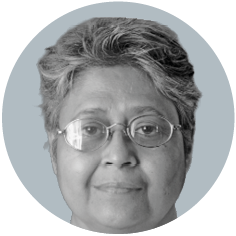India
Brutally divisive

The monk appreciates US President Donald Trump’s anti-Muslim rhetoric, and demands that India should restrict travel to and from Muslim-majority countries. His stance is brutally divisive, as 40 million Muslims are among the 200 million people who live in his state. In the recent state elections, his party, the BJP, did not field a single Muslim candidate. It won only about 40 % of the vote, but it now controls 312 of 403 seats in the state assembly because its candidates came first in most constituencies.
After taking office in March, Adityanath immediately launched a crackdown against meat shops, which tend to be run by Muslims whom Hindu fanatics accuse of selling beef. He also told the police to ensure that young Muslim men do not flirt with young Hindu women. According to his propaganda, Muslims are systematically seducing Hindu girls to convert. Adityanath has a reputation – and a history – of fundamentalist extremism.
Adityanath has a reputation – and a history – of fundamentalist extremism. A youth organisation he started has repeatedly been involved in “communal violence”, as riots of religious fanatics are called in India. As a teenager, Adityanath took part in the campaign to build a Hindu temple on the site of Babri Mosque in Ayodhya, a city in eastern Uttar Pradesh. The movement escalated, and, in late 1992, fanatics destroyed the mosque. Riots erupted all over India. At least 2,000 people, mostly Muslims, were killed. In response, there were anti-Hindu riots in Pakistan and Bangladesh.
Prime Minister Modi likes to stress development for all in his speeches. His choice of chief minister for Uttar Pradesh tells a different story. Clearly Modi understands the force of identity politics that distracts from underlying problems such as poverty, bad infrastructure and lack of opportunities for masses of people.










